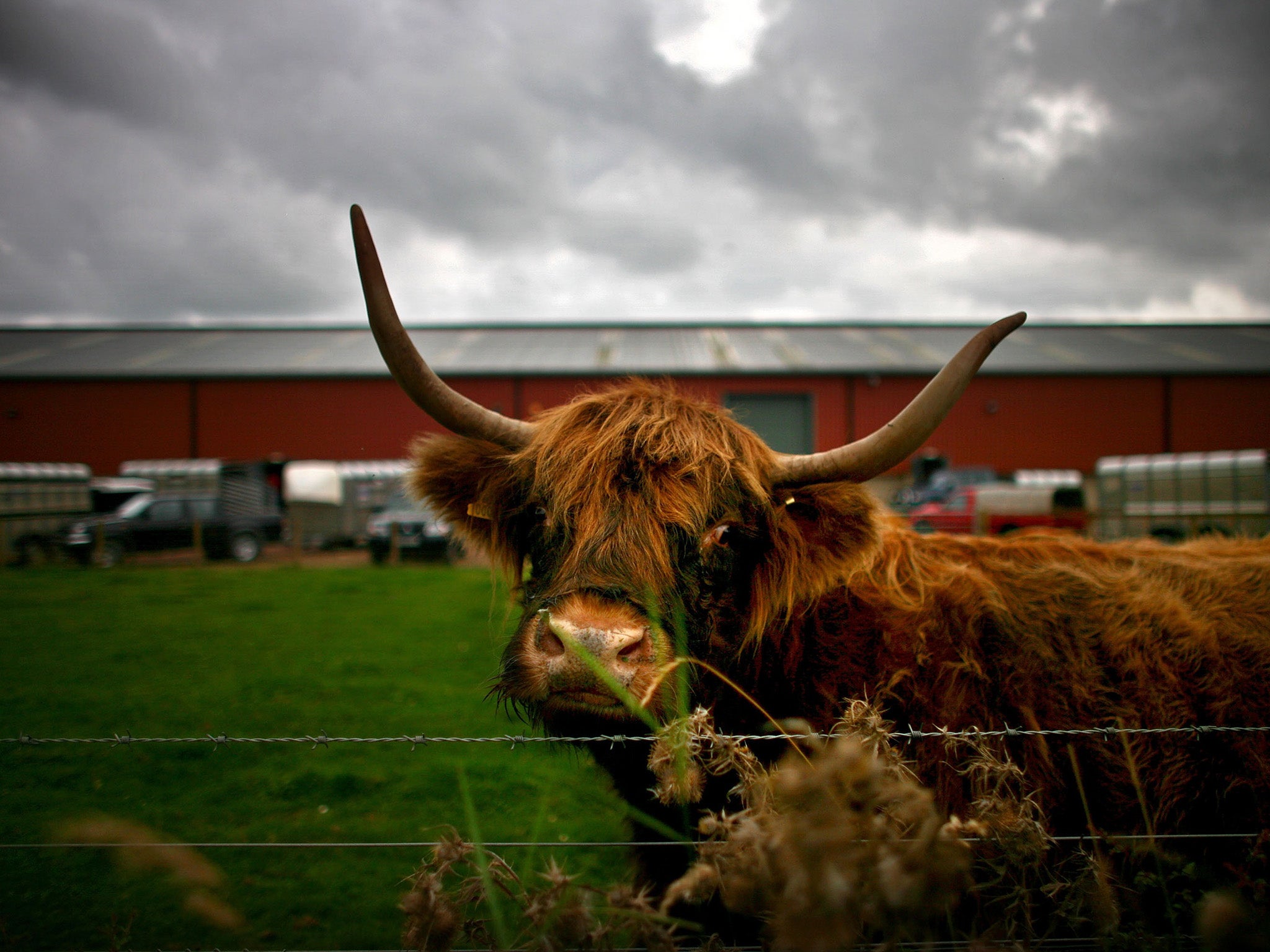Orkney Island farmers forced to sell cattle early after increased rainfall and low temperatures
As England and Wales bask in a heatwave, the far-flung Scottish island suffered temperatures 15C lower after three times the average rainfall in May

England and Wales might be basking in heatwave conditions as 1 July is forecast to be the hottest day of the year so far, but spare a thought for the cattle farmers of the Orkney Islands.
While sweltering conditions in the south east are set to see the temperature soar to 35C on 1 July – possibly the highest level since 2006 – farmers on the far-flung islands off the northern tip of Scotland have been forced to send cattle to market early and are facing possible financial ruin, after six months of above average rainfall and unseasonably low temperatures.
The rest of the country is enduring near record-high temperatures, amid a level 2 heatwave warning from the Met Office, fears for people with respiratory problems and cancelled train services after warning that tracks could buckle in the heat.
Six fast trains from London Paddington have been cancelled after Network Rail imposed speed restriction to protect tracks, while a health warning was issued for people suffering from lung conditions due to “lower moisture levels than usual”.
Public Health England warned there could be more deaths than usual among at-risk groups and said it was “likely” that the Met Office would upgrade its heatwave alert to a level 3 warning, prompting media alerts, community support and a review of safety a public events.
Hayfever suffered are also being warned to take extra measures as the pollen count and UV levels are “extremely high”, according to the Met Office.
On Orkney though, where farms have ensured heavy rain since last November, temperatures were 15C lower after three times the average rainfall fell in May.
Farms have been struggling to feed cattle on sodden field and farmers have been forced to send their cattle to market early, where losses are reported to be as high as £400,000 on the small island.
Every month since September on the island has seen above average rainfall with May and June being especially bad for crops and grazing land. May had 137mm of rain compared to a monthly average of 46mm, while June had around 90mm, compared to an average of 46mm.
Kenny Slater, secretary of NFU Scotland in Orkney, said: “We’re cautious about saying it is an absolute disaster, but as it stands if things don’t change it will be.”
Meanwhile in the north of England, the East Midlands and parts of Scotland a Met Office yellow warning for rain has been issues, with a thunder risk and rainstorms forecast for 1 July.
Warm temperatures with occasional outbreaks of thundery rain are expected for 2 July and, before clearer, fresher conditions by the weekend.
Subscribe to Independent Premium to bookmark this article
Want to bookmark your favourite articles and stories to read or reference later? Start your Independent Premium subscription today.

Join our commenting forum
Join thought-provoking conversations, follow other Independent readers and see their replies